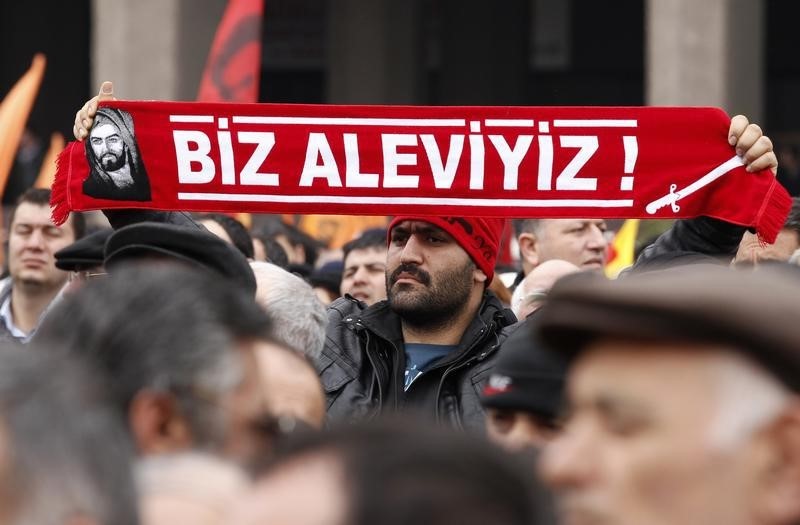STRASBOURG, France (Reuters) - The European Court of Human Rights condemned Turkey on Tuesday for discriminating against members of the Alevi religious minority by failing to grant their places of worship the same status and advantages as those of other faiths.
Making up about 15-20 percent of Turkey's 76 million people, Alevis draw from Shi'a, Sufi and Anatolian folk traditions, practising distinct rituals which can put them at odds with their Sunni Muslim counterparts, many of whom accuse them of heresy.
The head of an Alevi foundation argued that Turkey had discriminated against the minority by refusing to recognise cemevis, or assembly houses, as religious sites, which are exempted from paying electricity bills. The foundation had piled up 289,182 euros (229,312 pounds) of unpaid bills since 2006, when it first applied for the exemption.
A panel of seven judges at the Strasbourg-based court ruled against Turkish courts which had said that cemevis were not religious sites, based on an opinion from the Turkish religious authority stating that the Alevi faith was not a religion.
"The court rules that the plaintiff foundation was subjected to differing treatment, without objective or reasonable cause, and the method of exemption from payment of electricity bills for religious sites in Turkish law was enacting discrimination on the basis of religion," a summary of the ruling read.
The court has jurisdiction to hear allegations of violations of the European Convention on Human Rights, which Turkey ratified in 1954. It did not specify any penalty, but gave the Turkish state and the Alevi plaintiffs six months to propose an estimate of damages for discrimination.

Protests erupted in September in Ankara when Alevis reacted against plans to build a Sunni mosque next to a cemevi, which many said was an attempt to assimilate their community into the Sunni majority.
(Reporting by Nicholas Vinocur; Editing by Mark Trevelyan)